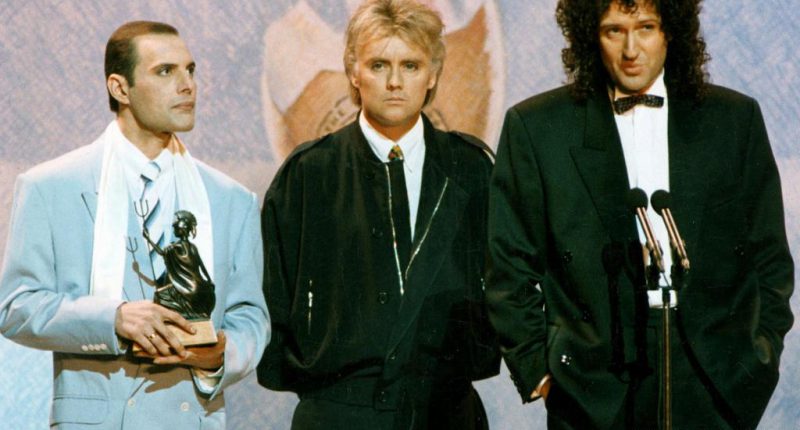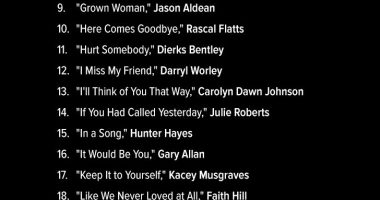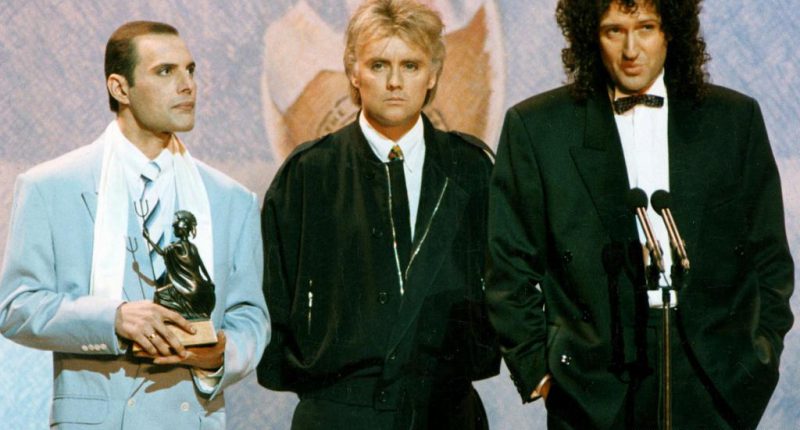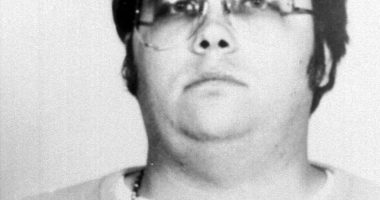The death of Freddie Mercury, lead singer of the rock group Queen, meant the extinction of a style only some were alive to see.

Queen established themselves as one of the first hard-rock groups coming out of the UK in the early 1970s. Their music was deafening and different than other bands of that generation. Freddie Mercury shifted the style because he was a unique individual being himself. The flashy vocalist put Queen within the focus of the public eye. The death of Freddie Mercury, who died at 45, meant we never saw the full potential of the rock star.
Queen is a band often difficult to categorize in a music genre. The band is hard to classify because Freddie Mercury was a frontman unlike any other before or since. Initially established as a rock band out of London in 1970, slowly beginning to find success in 1973. The album Sheer Heart Attack (1974), contained their first hit “Killer Queen.”
As Queen’s popularity continued to rise so too did frontman Freddie Mercury’s. Queen’s exposure grew to allow more people to see the master showmen at work. Mercury’s death essentially ended the era of a master artist in the field of rock star presence. Freddie was incredibly skilled in the way that he dressed, walked, and interacted with crowds in live performances; Mercury often made the entire band’s costumes by hand. As a result of Mercury’s dazzling showmanship, Queen was often categorized as a mix between glam rock and hard rock.
In the late 1980s, HIV became a widespread epidemic in the United States. This was a problem the Queen lead singer, according to some reports, did not take seriously lead to the death of Freddie Mercury.
Rolling Stone writes “there are varying accounts about how Mercury coped with the risk of contracting AIDS. But, BBC DJ Paul Gambaccini recounted running into Mercury at a London club called Heaven in 1984. Gambaccini asked Mercury if AIDS changed his attitude about free-ranging sex. Mercury replied, darling, my attitude is f*ck it. I’m doing everything with everybody. Gambaccini said I had that literal sinking feeling. I’d seen enough in New York to know that Freddie was going to die.’”
This disregard for the seriousness of HIV led to…
The Death of Freddie Mercury
In 1987 the Queen vocalist tested positive for the deadly virus though he kept the information secret from the public for years.
After Miracles release in 1989, Mercury asked the rest of Queen to join him at home to share the information. “You probably realize what my problem is. Well, that’s it, and I don’t want it to make a difference. I don’t want it to be known. I don’t want to talk about it. I just want to get on and work until I f*cking well drop. I’d like you to support me in this. May later said that he, Taylor and Deacon were devastated: We all went off and got quietly sick somewhere, and that was the only conversation directly we had about it.”
Freddie Mercury continued to record music until months before he died. Finally, releasing a statement to fans in 1991 in an attempt to gain awareness for the HIV/AIDS epidemic. Mercury wrote some of the unique rock songs in history including “Bohemian Rhapsody,” “We Are The Champions,” “Another One Bites The Dust,” and “Under Pressure.” His stage presence has been a model for frontmen of rock since Mercury’s death. Although some vocalists may appear the same, there will never be another Freddie Mercury.








 The death of Freddie Mercury, lead singer of the rock group Queen, meant the extinction of a style only some were alive to see.
The death of Freddie Mercury, lead singer of the rock group Queen, meant the extinction of a style only some were alive to see. 





